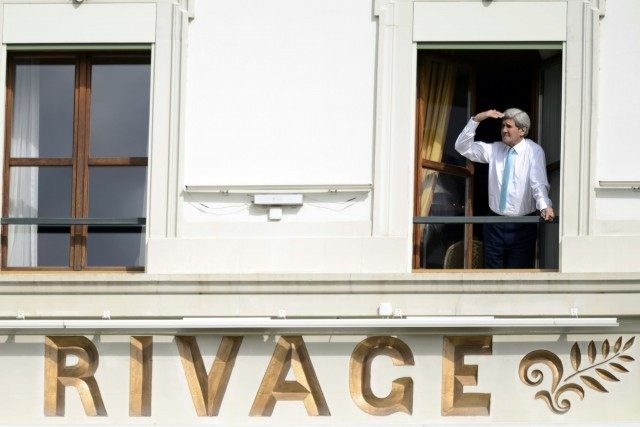When world powers reached a provisional deal with Iran in Lausanne, Switzerland, the Obama White House released a “fact sheet” to sell the deal to the American public. Iran disputed the details at the time, and indeed the final deal is significantly worse than Obama advertised.
1. Shrinks timeline for uranium enrichment limits from ten years to eight. The fact sheet said: “For ten years, enrichment and enrichment research and development will be limited to ensure a breakout timeline of at least 1 year.” The new deal shortens some of those limits to eight years. If the April deal allowed Iran to achieve “zero” breakout time after 13 years, as Obama himself admitted, the new deal accelerates Iran’s path to a nuclear weapon by at least two years. In a decade or so–if not before–Iran could become a nuclear power.
2. Allows Iran to restrict and delay international inspections, including inspections of nuclear sites. The Lausanne deal in April promised: “Iran will be required to grant access to the IAEA to investigate suspicious sites or allegations of a covert enrichment facility, conversion facility, centrifuge production facility, or yellowcake production facility anywhere in the country.” In fact, the new deal allows Iran to prevent some inspections and refer them to a committee, where it also has a seat. Inspections of military sites will be minimal.
3. Lifts arms embargo and ballistic missile embargo. The new deal will remove an arms embargo on Iran within 5 years, even as the Iranian regime continues to support international terrorism, wages war across the Middle East, and threatens to destroy Israel (and the U.S.). In addition, the new deal lifts international sanctions on specific terrorists. The April agreement promised: “U.S. sanctions on Iran for terrorism, human rights abuses, and ballistic missiles will remain in place under the deal.” That promise has now been shattered completely.
4. Allows some immediate sanctions relief. The new deal allows some sanctions against Iran to be lifted immediately, and the UN Security Council is required to pass a resolution to that effect. In April, however, the White House promised: “Iran will receive sanctions relief, if it verifiably abides by its commitments.” In fact it will achieve sanctions relief worth tens and even hundreds of billions of dollars before it has complied with conditions that even the deal’s supporters acknowledge will take years to monitor, measure, and verify.
5. Eliminates any possibility that Iran will provide information about past violations. Though not in the text of the Lausanne “fact sheet” itself, the Secretary of State John Kerry strongly suggested in the aftermath that the U.S. had, or would have, “absolute knowledge” about Iran’s past violations of international nuclear resolutions. There is nothing in the new deal that guarantees that, meaning there is no baseline against which to measure Iranian compliance with the terms of the new deal, rendering it essentially worthless.

COMMENTS
Please let us know if you're having issues with commenting.